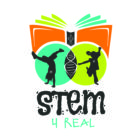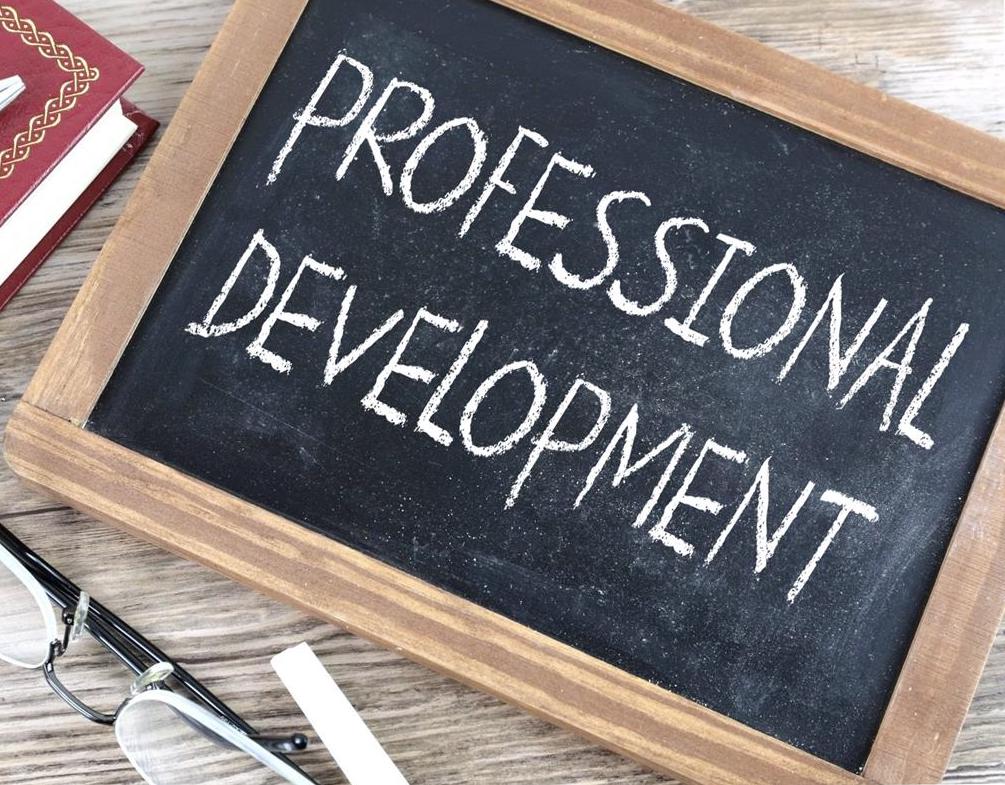Enhancing Excellence: STEM Professional Development for Educators
In an ever-evolving world driven by science, technology, engineering, and mathematics (STEM), it is imperative that educators are equipped with the necessary skills and knowledge to prepare students for the challenges and opportunities of the 21st century. STEM professional development plays a vital role in empowering teachers to deliver effective instruction and nurture students’ curiosity, problem-solving abilities, and innovation. In this article, we will explore various aspects of STEM professional development, including strategies, collaborative communities, assessment, differentiated learning, online and blended approaches, curriculum development, equitable access, and more.
Overview of STEM Professional Development
STEM professional development encompasses a range of activities designed to enhance educators’ expertise in teaching STEM subjects. It aims to deepen content knowledge, develop pedagogical strategies, and promote effective integration of technology and real-world applications in the classroom. The overarching goal is to improve student engagement, achievement, and readiness for STEM careers.
Effective Strategies for STEM Professional Development
To ensure impactful professional development, a combination of research-based strategies can be employed. These may include hands-on inquiry-based learning, modeling effective teaching practices, providing time for reflection and collaboration, promoting active engagement, and offering ongoing support and feedback. Additionally, incorporating real-world connections and addressing interdisciplinary approaches can enhance the relevance and effectiveness of professional development experiences.
Professional Learning Communities in STEM
Professional learning communities (PLCs) foster collaboration among educators, allowing them to share best practices, exchange ideas, and collectively solve challenges. In the context of STEM professional development, PLCs provide a platform for teachers to collaborate, explore innovative teaching strategies, and engage in reflective discussions that promote growth and learning.
Mentoring and Coaching for STEM Teachers
Mentoring and coaching programs offer personalized support and guidance to STEM teachers, helping them develop their instructional practices. Experienced mentors or coaches can provide valuable feedback, model effective teaching techniques, and support teachers in implementing new strategies. This one-on-one support contributes to the professional growth of educators and enhances their ability to meet the diverse needs of students.
Teacher Collaboration and STEM
Collaboration among teachers is essential for fostering creativity, sharing resources, and designing interdisciplinary STEM projects. By collaborating with colleagues, teachers can tap into a collective expertise, pool resources, and create meaningful learning experiences that integrate multiple STEM disciplines.
Needs Assessment for STEM Professional Development
A comprehensive needs assessment is crucial to identify the specific requirements of educators and design targeted professional development opportunities. By gathering input from teachers, administrators, and other stakeholders, a needs assessment ensures that professional development aligns with the goals and challenges of the school or district.
Evaluation and Feedback for STEM Professional Development
Ongoing evaluation and feedback mechanisms help gauge the effectiveness of STEM professional development initiatives. By collecting data on participant satisfaction, changes in instructional practices, and student outcomes, educators can continuously refine and improve their professional development programs to maximize impact.
Differentiated Professional Development for STEM
Recognizing the diverse needs and skill levels of educators, differentiated professional development offers tailored learning opportunities. By customizing content, delivery methods, and pacing, teachers can engage in professional learning experiences that address their individual needs and build upon their existing knowledge and skills.
Online Professional Development for STEM
Online platforms provide accessible and flexible options for STEM professional development. Through webinars, virtual workshops, and online courses, teachers can engage in self-paced learning, collaborate with peers globally, and access a wealth of resources and tools that support effective STEM instruction.
Blended Learning for STEM Professional Development
Blended learning combines online and face-to-face elements to create a dynamic and interactive professional development experience. By integrating both virtual and in-person components, educators can benefit from the flexibility of online learning while also engaging in collaborative activities and hands-on experiences.
STEM Curriculum Development for Teachers
STEM curriculum development empowers teachers to design and implement rigorous and engaging instructional materials aligned with national and state standards. By incorporating real-world contexts, project-based learning, and authentic assessments, educators can cultivate students’ STEM skills and knowledge.
STEM Content Deepening for Teachers
To effectively teach STEM subjects, educators need a strong foundational understanding of the content they are teaching. Content deepening opportunities, such as subject-specific workshops, seminars, and graduate courses, enable teachers to enhance their knowledge and expertise in specific STEM disciplines.
Data-Driven Decision Making for STEM Teachers
Data-driven decision making equips STEM teachers with the skills to analyze student data, identify areas of improvement, and tailor instructional strategies accordingly. By utilizing assessment data, teachers can differentiate instruction, monitor progress, and provide targeted support to students.
Building STEM Leadership in Schools
Developing STEM leadership within schools involves nurturing administrators and instructional leaders who can support and promote effective STEM instruction. By providing leadership development opportunities and fostering a culture of innovation, schools can create an environment where STEM education thrives.
STEM Professional Development for Administrators
Administrators play a critical role in supporting STEM initiatives within their schools or districts. Professional development programs tailored to administrators can provide the knowledge and skills necessary to effectively guide, mentor, and advocate for STEM teachers and students.
Equity and Access in STEM Professional Development
Promoting equity and access in STEM professional development ensures that all educators, regardless of their background or context, have equal opportunities to enhance their STEM instructional practices. It involves addressing biases, providing culturally responsive teaching strategies, and removing barriers to participation.
Culturally Responsive STEM Teaching
Culturally responsive STEM teaching recognizes and values the diverse cultural backgrounds and experiences of students. By integrating culturally relevant content, instructional materials, and pedagogical approaches, educators can create inclusive and engaging STEM learning environments.
Multilingual Learners and STEM
STEM professional development should include strategies for supporting multilingual learners in their acquisition of STEM concepts and language. By employing language development strategies, providing appropriate scaffolding, and utilizing culturally responsive approaches, educators can ensure that all students have access to STEM education.
STEM Teaching for Students with Disabilities
Inclusive STEM education involves providing appropriate accommodations and supports for students with disabilities. STEM professional development should equip educators with strategies to differentiate instruction, adapt materials, and utilize assistive technologies to create accessible and engaging learning experiences.
STEM Professional Development for Early Childhood Educators
Early childhood educators play a crucial role in laying the foundation for future STEM learning. Professional development opportunities for early childhood educators should focus on integrating STEM concepts into developmentally appropriate practices, fostering curiosity, and promoting hands-on exploration.
STEM Professional Development for Middle School Teachers
Middle school is a critical period for engaging students in STEM. Professional development for middle school teachers should emphasize strategies to spark interest, integrate real-world applications, and promote interdisciplinary connections, thus preparing students for more advanced STEM coursework.
STEM Professional Development for High School Teachers
High school educators need professional development that supports rigorous and relevant STEM instruction, prepares students for college and career pathways, and exposes them to diverse STEM opportunities. Focus areas may include advanced content knowledge, authentic assessments, and integration of emerging technologies.
NGSS-Aligned STEM Professional Development
The Next Generation Science Standards (NGSS) provide a framework for delivering high-quality STEM education. Professional development aligned with NGSS equips educators with the necessary tools and strategies to implement inquiry-based learning, engineering practices, and cross-cutting concepts effectively.
Integrating Technology into STEM Instruction
Technology integration is a key component of effective STEM instruction. Professional development should assist educators in selecting and utilizing appropriate technologies, integrating coding and computational thinking, and fostering digital literacy skills to enhance STEM learning experiences.
Project-Based Learning for STEM
Project-based learning immerses students in authentic, real-world problem-solving experiences. Professional development programs should guide educators in designing and implementing meaningful projects that integrate STEM disciplines, foster collaboration, and develop critical thinking skills.
Interdisciplinary STEM Teaching
STEM education often thrives when multiple disciplines are integrated. Professional development opportunities should encourage educators to explore interdisciplinary connections, promote collaboration among subject areas, and design integrated STEM curricula that reflect the interconnectedness of STEM disciplines.
STEM Career Exploration for Teachers
To inspire students’ interest in STEM careers, educators should have an understanding of various STEM professions and their real-world applications. Professional development programs can provide opportunities for teachers to explore STEM careers, connect with industry professionals, and develop strategies to integrate career exploration into their instruction.
STEM Teacher Certification Programs
STEM teacher certification programs offer educators the opportunity to specialize in STEM education. These programs focus on developing advanced content knowledge, pedagogical skills, and the ability to integrate STEM disciplines effectively into classroom instruction.
Partnerships for STEM Professional Development
Collaboration between schools, districts, universities, businesses, and community organizations can enhance the quality and impact of STEM professional development. Partnerships provide access to resources, expertise, and real-world connections that support meaningful STEM learning experiences.
Funding Opportunities for STEM Professional Development
Securing funding is crucial for implementing robust STEM professional development programs. Educators and schools should explore grant opportunities, partnerships with funding organizations, and district allocations to ensure sustainable support for ongoing professional development initiatives.
STEM professional development is a vital component of empowering educators to provide high-quality instruction in science, technology, engineering, and mathematics. By implementing effective strategies, fostering collaborative communities, integrating technology, and addressing diverse student needs, educators can cultivate a generation of STEM-literate individuals who are equipped with the skills to thrive in the modern world. As the landscape of STEM continues to evolve, ongoing professional development will remain crucial in equipping educators with the knowledge and tools necessary to inspire and prepare the STEM leaders of tomorrow.

